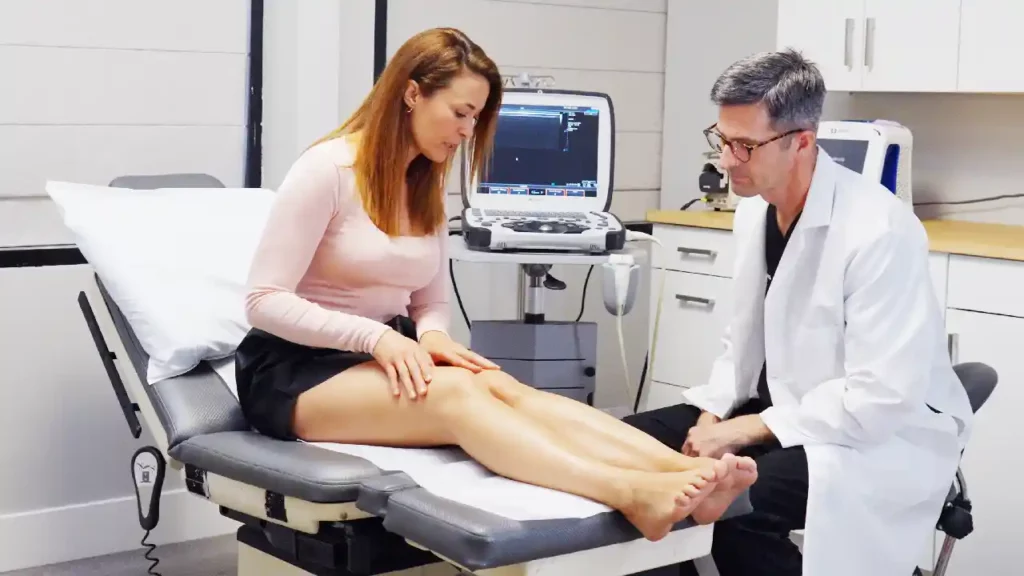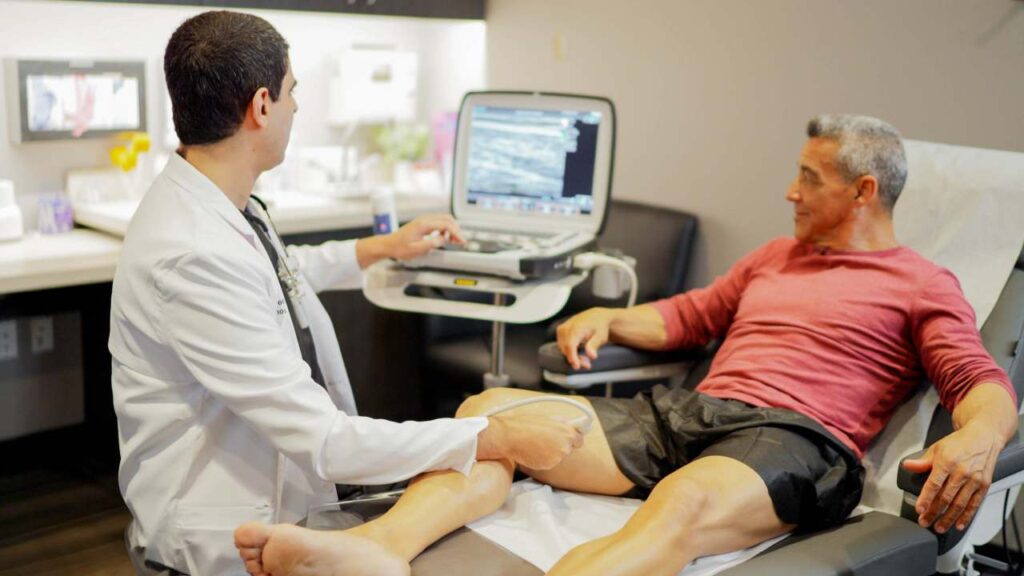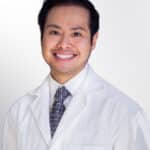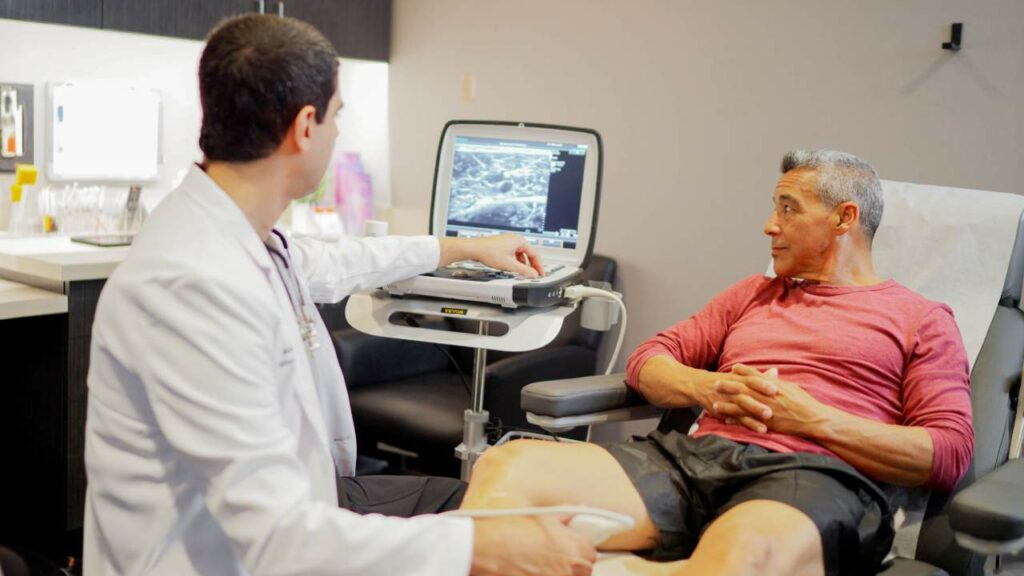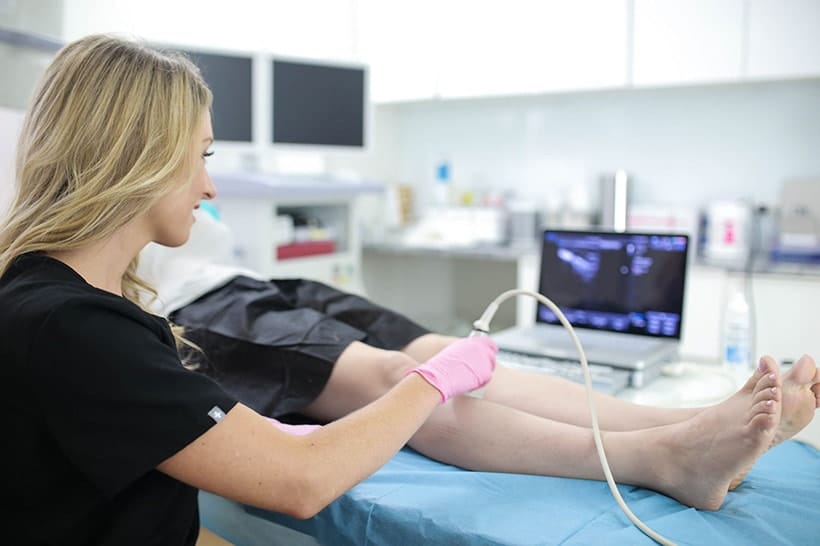What Are Vascular Surgeons Called in California?
Vascular surgeons are doctors who treat disorders and issues of the vascular system, including veins and arteries, as well as the lymphatic system. They treat most blood vessels, with the exclusion of those in the heart and brain, which are treated by cardiologists and vascular neurologists, respectively. Vascular surgeons have completed medical school, followed by residencies in general and vascular surgery.
However, other vein doctors, like phlebologists, are also board certified to treat veins, and they do it less invasively. Patients with spider veins, varicose veins, or vein disease should consult a minimally invasive vein doctor before a vascular surgeon, unless that surgeon is trained in, and favors, less invasive methods. Book an appointment with a board certified vein specialist in California to determine your ideal treatment plan.
Which Blood Vessels Do Vascular Surgeons Treat in 2022?
Vascular surgeons treat veins and arteries, but many focus more on arterial diseases than spider veins and varicose veins. Vein surgery used to be a common treatment for varicose veins. But over the past 30 years, several less invasive, superior methods have emerged for veins. Most varicose veins are now treated by vein specialists and phlebologists, with minimally invasive techniques like sclerotherapy, radiofrequency ablation, endovenous laser ablation, vein adhesives, and mechanochemical ablation.
Varicose veins often result from faulty valves inside veins that allow blood to flow in reverse and cause excess endovenous pressure. Arteries do not have valves, and they’re propelled by the heart, so reflux is not the impetus for excess blood pressure in arteries. Arterial hypertension stems from things like obesity, disease, medication, and aging, and is often treated with medication rather than surgery. So, vascular surgeons typically only use surgery for things like arterial aneurysms, blood clots in carotid arteries, or severely tortuous varicose veins.
Do Vascular Surgeons Treat the Whole Circulatory System?
The circulatory system, or cardiovascular system, comprises the heart, blood vessels (veins, arteries, and capillaries), and blood. Vascular surgeons deal mainly with blood vessels, while cardiologists tend to the heart, and hematologists treat issues in the blood. But there is obviously some overlap, so it’s important to choose a board certified vascular doctor who understands the intricacies of the circulatory system. Cosmetic vein centers don’t have the ultrasound training or knowledge of vasculature to identify problematic connecting veins, blood clots, or broken valves.
Do They Treat Carotid Arteries, Peripheral Arterial Disease?
Yes, vascular surgeons treat disease in carotid arteries, peripheral arterial disease, and atherosclerosis (plaque build-up in arteries that restricts blood flow). Patients with diabetes and arterial disease should also visit a vascular surgeon. Some vascular surgeons perform dialysis access on diabetic patients, but other patients might be referred to a radiologist or nephrologist if they have failing kidneys.
If you have vein issues, however, it’s unlikely you need a vascular surgeon. Non-surgical methods are the first line of treatment for spider veins and varicose veins. Some vein patients require vascular surgery, if they have a history of blood clots or complicated tortuosity in their veins. But even vascular surgeons rarely advise surgery for spider veins or varicose veins with the newer options on the market.
Do I Need Vascular Surgery for Spider or Varicose Veins?
Most patients don’t need vascular surgery for varicose veins, and no patients need surgery for spider veins. Vein doctors can now insert tiny needles or catheters into the vein and administer treatment directly to the vein’s walls. This causes the vein to seal shut and shrink from sight, rather than being cut out of the body.
Surgery is more costly, painful, risky, and time-consuming than less invasive techniques, and it’s proven to be less effective in the long run for most varicose veins. Veins that are cut out of the body are more likely to grow back than those that are sealed off. And when they grow back, they don’t have valves, which means blood flows in reverse and creates varicose veins again.
Can Minimally Invasive Vein Doctors Treat Vascular Problems?
Yes, minimally invasive vein doctors are the first choice for most vein issues and vein disease. These procedures require no general anesthesia, hospitalization, or downtime, and they’re completed in under 30 minutes. Patients can walk immediately and resume their typical work and social routines. Complications and discomfort are vastly diminished by using non-surgical techniques.
Patients routinely remark that they would have treated their veins years ago if they knew how easy the newer treatments were. There are no large incisions, stitches, bandages, or crutches. Patients can even drive themselves to and from the appointment. If you’re bothered by varicose veins, spider veins, or related symptoms like leg swelling, heaviness, restlessness, cramping, or itching, visit our Harvard-trained vein doctors in California for quick relief.
Which Doctors Have Board Certification to Treat Veins in CA?
It’s important to require board certification of the doctor who treats your veins. Getting board certified is a separate and optional step in addition to earning a MD or DO degree. Doctors who are board certified have completed additional fellowships, residencies and training and have passed an examination of their skills and abilities. Don’t just ask, “What is a vascular surgeon called?” Ask what they’re certified in and if they’re also trained in less invasive methods.
Not all vein specialists are board certified, and those who are, aren’t necessarily certified in a field that pertains to veins. Find a top California vein doctor by searching the American Board of Venous and Lymphatic Medicine or American Board of Medical Specialties registries. At our premier vein centers, each vein doctor is board certified, and many of them hold multiple certifications. Visit our state-of-the-art vein center in San Diego or San José for world-class vascular care.
